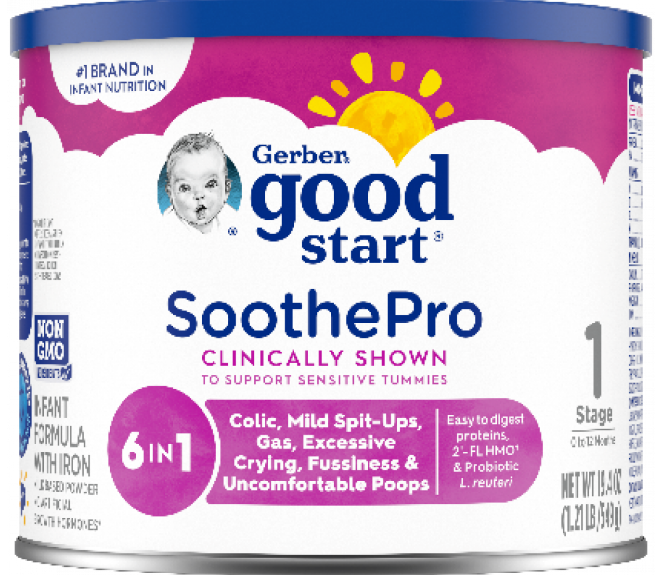The FDA reported that Perrigo Company issued a voluntary recall of certain lots of Gerber® Good Start® SootheProTM Powdered Infant Formula in the U.S. that were manufactured at the Company’s Gateway Eau Claire, Wisconsin, from January 02, 2023, to January 18, 2023. This product was recalled due to the potential presence of Cronobacter sakazakii. Associated Wholesale Grocers, Inc. (AWG) is releasing this additional notice because one of the recalled products was distributed to its Nashville Division retailers after the initial recall notice was published. This recalled product was distributed from its Nashville Division only to independent retailers located in AL, GA, IN, KY, OH, TN, VA, and WV under the following retail banners: Belle Foods, Bellview Price Cutter, Booneville Shopwise, Brown County IGA, Buehler’s, Buehler’s Cash Saver, Buehler’s IGA, Camridge City Market, Campbell’s Market, Camron’s Foodliner, Cash Saver, Cash Saver Harlan, Chappell’s Hometown, Country Mart, Crossroads IGA, Food City, Food Giant, Food World, Foodland, Frabergs Foods, Fresh N Low, Gallion’s Market, Gregerson’s Cash Saver, Hilltop Cee Bee, Hometown IGA, Houchen’s, Howard’s IGA, Laurel Grocery Company, Liberty IGA, Market Place, Noble’s IGA, Parkview IGA, Noble’s IGA, Parkview IGA, Piggly Wiggly, Piggly Wiggly Warrior, Price Cutter, Price Less Foods, Price Less IGA, Quality Foods, Riesbeck’s, Rivertown IGA, Simpson’s Supermarket, Spencer Cash Saver, Stop to Save, Sureway, Sureway Henderson, Swafford and Sons IGA, Tietgens Mt. Pleasant IGA, Valu Market, Versailles IGA, Vevay IGA, Village Market & Café, Walnut Creek Country Market, Winburn Fruit Market, and Woodruff’s Supermarket. @ https://www.fda.gov/safety/recalls-market-withdrawals-safety-alerts/associated-wholesale-grocers-inc-releasing-notice-due-recalled-infant-formula-being-distributed-its?utm_medium=email&utm_source=govdelivery




